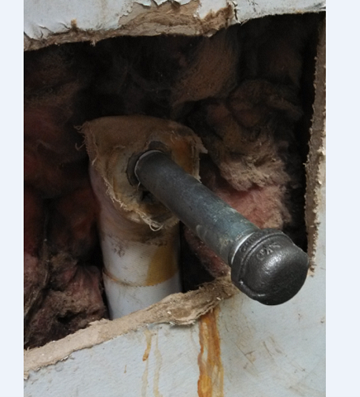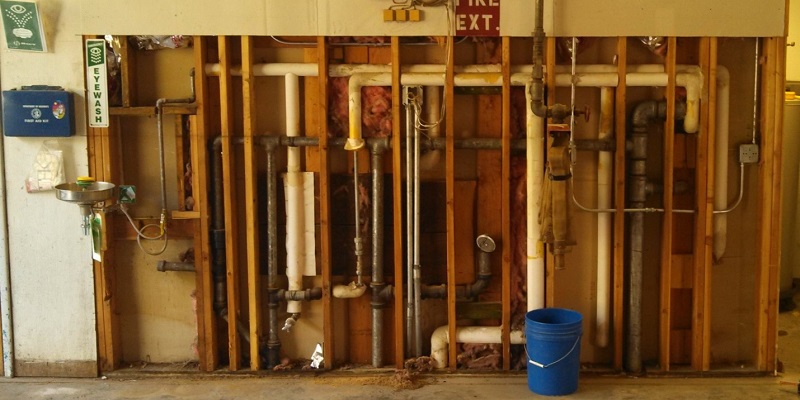Capital Facilities - Maintenance completion
On this page:
Maintenance completion
Source: WSDOT Capital Facilities Office
Note: Percentages may not add to 100 due to rounding. Projections based on current inventory.
Performance analysis
2023
WSDOT's preventive maintenance completion rates decrease
During the 2021-2023 biennium, WSDOT completed 82% of its Facilities Preventive Maintenance Plan tasks, an increase of six percentage points from 76% in the 2019-2021 biennium.
As facilities age, the frequency and costs of emergency repairs increase. WSDOT focused efforts on these emergent needs in the previous biennium and addressed the most critical preventive maintenance tasks to ensure staff safety and operational capability. As a result, less critical tasks were deferred, often those associated with HVAC, plumbing, paving, and stormwater. WSDOT continues to face staffing challenges, especially in skilled trades like HVAC technicians and mechanical systems specialists. These staffing issues affect the agency's ability to complete preventive maintenance tasks.
In WSDOT's Eastern Region, the Republic maintenance facility located in Ferry County supports nine staffmembers who run 24-hour operations in the winter to plow and de-ice State Highway 20, Sherman pass. The Republic maintenance facility has experienced problems with its water system for over 10 years. WSDOT typically defers all plumbing maintenance tasks because of underfunding. It is estimated that the remaining preventative maintenance work needed for these plumbing repairs will cost approximately $90,000, but there is no budget, and the system will be "run to fail."


2021
WSDOT's preventive maintenance completion rates decrease
During the 2019-2021 biennium, WSDOT completed 76% of its Facilities Preventive Maintenance Plan tasks, down seven percentage points from 83% in the 2017-2019 biennium. As facilities continue to age, costs for emergency repairs have increased, which decreased funding available for preventive work. In addition, the COVID-19 pandemic affected WSDOT's ability to deploy and hire staff, as well as use vendors to fill in labor gaps. These staffing issues significantly impacted the agency's ability to complete preventive maintenance tasks.
Staffing will continue to be a challenge in the near future as WSDOT works to keep its facilities operational. In WSDOT's Northwest Region, the Everett Headquarters Supervisor/Crew building has had a broken rooftop heater for two years. In a stopgap effort in 2019, a wall heater was installed that borrowed the circuit wiring from the rooftop unit. In spring 2020, the wiring was switched back to the rooftop unit for ventilation. The wiring has once again been switched back for this winter to run the wall heater.
Temporary fixes like this are prevalent throughout the state and require time and efforts from maintenance staff that would otherwise be used on preventive maintenance.
WSDOT's preventive maintenance completion rates decrease
As of September 2021, the total preservation backlog for WSDOT primary buildings was estimated at $239.4 million, a decrease of $20.5 million from $259.9 million in 2019. This decrease was primarily due to the improvements of the Northwest Region Dayton Avenue building project, but it was not enough to offset the resulting $4.0 million increase in backlog since 2017.
WSDOT nearing completion of Dayton Avenue building remodel, reduces backlog
WSDOT's Dayton Avenue Regional Headquarters Building Renovation project is mostly complete and has removed $19.9 million from the maintenance backlog. The renovation revamped the six-story office structure on Dayton Avenue in Seattle, totaling 161,882 square feet of interior building space. The office space serves as WSDOT's Northwest Regional headquarters housing approximately 420 WSDOT staff, and 200 Washington Department of Ecology employees. In addition to the primary building renovation, a new 7,000 square foot storage building has been added to the site. Electric vehicle charging stations were also added, as well as substantial utility and frontage improvements.
WSDOT aims to further reduce backlog by selling surplus inventory
Another approach to decreasing backlog is by reducing building inventory. WSDOT recently sold a site in Wenatchee that contained two buildings built in the 1930s, which were replaced by new buildings at the North Central Region headquarters complex (also in Wenatchee). With the two older buildings off the books, the maintenance backlog decreased by $11.6 million.
WSDOT is nearing completion of the new Olympic Region headquarters in Lacey. When complete, the facility will replace the headquarters location in Tumwater and remove $25.8 million of maintenance backlog as aging buildings are replaced with new ones.
2019
WSDOT's preventive maintenance completion rate expected to decrease
WSDOT completed 83% of its Facilities Preventive Maintenance Plan tasks during the 2017-2019 biennium. This is a slight improvement over the 2015-2017 completion rate of 82%.
While the preventive maintenance completion rate has been relatively steady, WSDOT expects it to decline due to budget challenges. As facilities continue to age, costs for emergency repairs are expected to significantly increase with the resulting unplanned spending decreasing the amount that can be spent on preventive work.
WSDOT has already begun to experience the consequences of deferring routine maintenance. In August 2018, a water supply line at a WSDOT facility in Spokane failed and flooded over 2,000 square feet of office space, extensively damaging carpets, ceilings and walls. Plumbing inspections at this location had been deferred for more than a decade due to budget constraints. Restoring the building cost approximately $28,000, while the estimated cost of a plumbing inspection is $66.80. Cleanup required the use of emergency contractors for flood mitigation, damage repair and mold prevention. Restoring the building to full service took three weeks and affected over 90 employees and their project timelines.
Maintenance backlog increases as buildings age
As of September 2019, the total maintenance backlog for WSDOT primary buildings was $259 million, an increase of $7.1 million from the 2017 backlog estimate of $252 million. This is less than the average two-year backlog increase of $16.4 million between 2014 and 2018 (all numbers in 2019 dollars).
WSDOT uses Practical Solutions to help address maintenance backlog
WSDOT has implemented practical solutions to address the maintenance backlog by strategically investing funds and staff time. For example, WSDOT improved the condition of the Forks Equipment Storage building from fair to good during the 2017-2019 biennium.
WSDOT accomplished this by finding ways to spend the same funds more effectively, reassessing staffing needs and stationing a maintenance tech in Port Angeles. Having staff closer to remote facilities on the Olympic Peninsula reduced travel time, increased time on-site, and also reduced the use of contracted vendors for maintenance and repairs.
WSDOT selling surplus buildings as part of North Central Region Headquarters replacement efforts
WSDOT is in the process of selling two 1930s buildings in Wenatchee that have been replaced by newer buildings at the North Central Region Headquarters complex. Once those buildings are sold, their maintenance will no longer be the agency's responsibility and the backlog is expected to shrink by roughly $8.7 million, from $259 million to approximately $250 million.
2017
WSDOT's aging facilities continues to rise
The current WSDOT Facilities Preventive Maintenance Plan completion rate is 82%. This exceeds the target goal of 71%, but is down from the 88% reported in 2015. Under the current maintenance model, only the most critical preventive maintenance activities are planned. As facilities continue to age, costs for emergency repairs continue to significantly increase. Emergency repairs include but are not limited to broken water lines, leaking roofs and non-functioning heating systems.
One example of an emergency repair was failed boilers at WSDOT's Northwest Region Headquarters in Seattle that left the building without heat for several days. Fixing the boilers at the Northwest Region Headquarters meant diverting funding from other facility programs.
During the 2013-2015 biennium, funding was diverted from other facility maintenance programs—such as preventive maintenance—to increase emergency repair funding to $4 million (a 12% increase from theprior biennium). Before the biennium was done, another $500,000 was needed. A total of $4.5 million was spent on emergency repairs, up from $2 million two biennia ago (a 125% increase).
When costs for emergency repairs exceed available resources, funding from other facility activities and planned preventive maintenance is diverted. The overall trend of emergency repair is comparable to not changing the oil in your car so that you can instead buy a used tire to replace a blown out tire; it is simply not sustainable.
As primary facilities age, total backlog increases
The current total preservation and replacement backlog for WSDOT's 283 primary buildings increased to $235.4 million in 2017, up nearly $27 million, or 13%, compared to 2014 estimates. In 2015, WSDOT's Capital Facilities strategic plan identified a $475.5 million backlog of unmet needs for the next 10 years for more than 800 facilities statewide, including the 283 primary buildings.
WSDOT completed its first round of primary building condition assessments using the Facility Inventory and Condition Assessment Program developed by Washington State University. The FICAP system generated a total backlog estimate of $474.7 million; this data provides new and independent support for the 2015 estimate.
